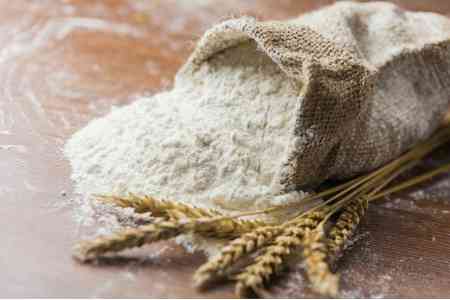


ArmInfo. In addition to statistics on the undernourishment of the Armenian population, the inhabitants of the country also suffer from the so-called hidden hunger or lack of micronutrients. "Very often, the quality of food consumed by people does not match their nutritional needs, and they do not receive the necessary amount of essential vitamins and minerals for growth and development," Vache Gabrielyan, minister of international economic integration and reforms, told ArmInfo on January 15. In this context, the minister found it right to enrich the flour with folic acid and iron in Armenia.
According to the minister, the problem of hidden hunger is often not connected with the financial capabilities of citizens. This is most likely due to the specifics of the national cuisine or the preferences of citizens, as well as the way of life of the population of Armenia. "It is especially important for us to focus on proper baby food, and therefore the Armenian government implements various programs to strengthen food security and improve school nutrition in the republic," he said.
In addition, as Vache Gabrielyan noted, various reports on hidden famine among the population of Armenia say that even wealthy families have problems with malnutrition due to improper diet. "The project to enrich the flour with folic acid and iron is aimed precisely at these goals and, in my opinion, it must be realized," the minister said.
The artificial enrichment of flour with folic acid is a trend of recent decades. The initiative belongs to the Food Fortification Initiative (FFI USA), consisting of 89 organizations, which include the World Bank, WHO, UNICEF and other major world institutions. Legislation on the enrichment of wheat flour has about 80 countries, corn flour - 12, rice - 5 countries. In 7 countries of Europe and Asia flour fortification is mandatory. Almost the whole of the American continent and Australia are involved in this program, flour is not enriched in most countries of Eurasia (including China and India). The main additives are iron compounds and folic acid. Can also be added zinc, vitamins A, D, other B vitamins: nicotinic acid, thiamine, riboflavin and cyanocobalamin. According to the FFI, each country decides in what quantity and what additives local flour-mills should use.